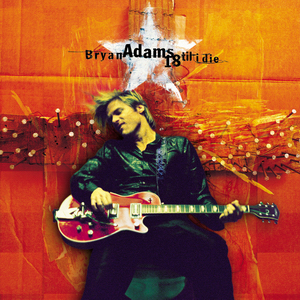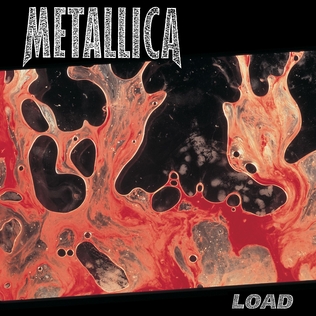
(#553: 14 September 1996, 1 week)
Track listing: Trash/Filmstar/Lazy/By The Sea/She/Beautiful Ones/Starcrazy/Picnic By The Motorway/The Chemistry Between Us/Saturday Night
This wasn’t quite the same band as the one which recorded entry #476. Bernard Butler had been gone for two years. Who was going to replace him? Nobody really visualised a seventeen-year-old A Level student who sent in a demo tape to the band’s fan club explaining how good he’d be for them. Yet it was drummer Simon Gilbert who walked into the office while Brett Anderson was sifting through a whole pile of tapes and thought he was listening to an early Suede demo – Richard Oakes had recorded his own versions of some of their songs and added a few of his own compositions to show how much he could contribute.
Intrigued, the band invited Oakes in for an audition. The chemistry between the two parties sparked immediately but they asked him to come back for a second go the following week just to prove it wasn’t a one-off. He duly returned, and it most certainly wasn’t, so he was offered the job. He had hitherto been playing in a Dixieland jazz band as well as in school “rock” groups, so he had a pretty good idea about how to assemble a song.
Hence the third Suede album, hailed by everyone as a mighty against-the-odds comeback, and perhaps easier to assimilate than the second one. The gestation period of Dog Man Star had been painful. Butler’s father had died shortly before the band had been due to begin their tour of the United States. In addition, he also became engaged, and felt overall that he was drifting away from the other three, and they from him.
There were virulent arguments and disagreements, and unquestionably a shipload of drugs floating around. For the album, Butler recorded his parts in a completely separate studio area from the rest of the band. He angrily quit the group before the record was properly finished, meaning that unnamed session musicians had to be brought in in order to cover for his absent work.
Not that Anderson was necessarily in a better place at the time; he had just moved into a flat in hilly Highgate, adjacent to what was essentially a Mennonite church, and would hear their hymnals floating through his walls. All well and good, of course, but spiritually and emotionally he was kaput, wasted.
Much of that waste naturally filters through to Dog Man Star. It is a forbidding and opaque collection. Its faster songs did not possess the snappy cheek of those from the record’s predecessor; humour, indeed, was almost entirely absent. The non-album single “Stay Together" which preceded it should have acted as a warning, since it was practically bipolar in nature; its first half a straightforward boisterous arm-waving consolation (Anderson), its second a hellish drive into a limbo beyond rational recognition (Butler, although it’s Anderson who yells “Don’t take me back to the past!”).
And yet, when it slows down, cools down and becomes more intimately intense, Dog Man Star offers us music as profound and moving as anything else of its decade. There are subtle clues on the album as to where it might be heading; the icy ethereality of “Daddy’s Speeding,” the rude snort of Andrew Cronshaw’s ba-wu flute which introduces “New Generation,” like an abruptly-awoken hippopotamus.
The sequence of “The 2 Of Us” and “Black Or Blue” – note Anderson’s prophetic “And I don’t care for the U.K. tonight” in the latter – is shiveringly brilliant, piercing through to emotions that much other mid-nineties music didn’t even strive to reach (Global Communication’s “14 31,” with its patient rhythm of the profoundest clock that ever ticked, bounds to mind as a comparison). “The Asphalt World” would work as an escape route from those cloisters – it is, or ought to be, the album’s antechamber to climax – were it not for some ill-advised extended jamming (Butler at this stage was no David Gilmour, who generally knows what notes to play, when to play them and most importantly why he should play them). “Still Life” is a splendidly semi-cathartic coda and the corniness of the closing orchestral passage doesn’t bother me at all; on the contrary, it elevates the dreams of the song’s everyday Valium Court housewife into a literal bolero of absolution.
Usually, in critical overviews of this closing section to Dog Man Star, writers focus on an assumed Scott Walker influence in its key songs. If there were, then hiring Andrew Cronshaw and Brian Gascoigne and his Sinfonia strings was actually slightly ahead of the Tilt game. But the overarching influence has never, to my knowledge, been acknowledged – listen to Anderson’s climactic “us” in “The 2 Of Us” or the way the word “coast” wriggles from his spirit in “Black Or Blue,” not to mention his mastery of the forlorn falsetto, and it is suddenly and abundantly clear that the singer is channelling Billy Mackenzie (hear “And This She Knows” or “Nocturne VII” and tell me I’m mistaken). Given that Mackenzie was about to be signed to Suede’s label Nude Records, the comparison here is surely unavoidable.
The imperfectly-completed artefact was perhaps too much to assimilate for everybody, including Suede themselves. Ironically, before he left the band, Butler had actually agreed with Anderson that their next move should be to get back to snappy pop songs with tangible hooks – you can witness the glory of McAlmont and Butler’s “Yes” as evidence of where Suede might have gone had Butler stayed. As things were, however, Anderson and Oakes, after a slightly wearying period touring Dog Man Star, knuckled down in an attempt to write such songs.
If anything, “Trash” was a glorious knockout comeback, proving to doubters that the new Suede were freshly capable of cutting it. While still very much the apprentice, Oakes nevertheless finds space to insert his subtle stamp on the song – which really acts as a manifesto for Suede and their fans - and the band sounded livelier than they had done in three years. “Filmstar” may get a little too comfortable in an imagined 1972 oasis, but as skulking bubbleglam it does its sneakily catchy business, while “Beautiful Ones” relies on the underlying bed of concealed sadness which rendered Suede different from (insert Sky Bet League One glam-indie band of your choice). Hooks and handclaps aplenty, exactly as though the new boy had swept into the room, thrown the curtains open and let the light back in. The band feels like itself once more. Meanwhile, “Starcrazy” indicates that Oakes was already working on ideas of his own, and they delightfully do not clash with Anderson’s.
Of the ballads, “By The Sea” dates from 1993 – which is why its opening line reflects “So Young” – but the album’s closing three tracks are new, and rather splendid, slowly reaching out to the listener as opposed to shutting the porthole on them. “Picnic By The Motorway” is so provincially grand that you don’t initially notice the song’s framing horror; it could be a sequel to “Daddy’s Speeding.” The forebearing languidity of “The Chemistry Between Us” – what does Anderson really know of “Streatham trash?” – supports a searing melancholy, not of a romance, but two drug addicts who have only their drugs in common, as a tool of communication.
But “Saturday Night” – and throughout Coming Up, Craig Armstrong’s string arrangements are a far apter fit for Suede than Gascoigne’s; they breathe (i.e. coming up for air) and cohabit with the songs rather than overpower them or comment on them from the sidelines – concludes on a note of cautious optimism and acts as a courtly response to Petula Clark’s “Downtown”; the day job is out of mind on a Saturday so let’s get out, enjoy ourselves, never trade a stupid decision for another five years of life, and most importantly of all, “never let the winter in.” Coming Up sounds as though Suede have freshly partaken of a new spring.





